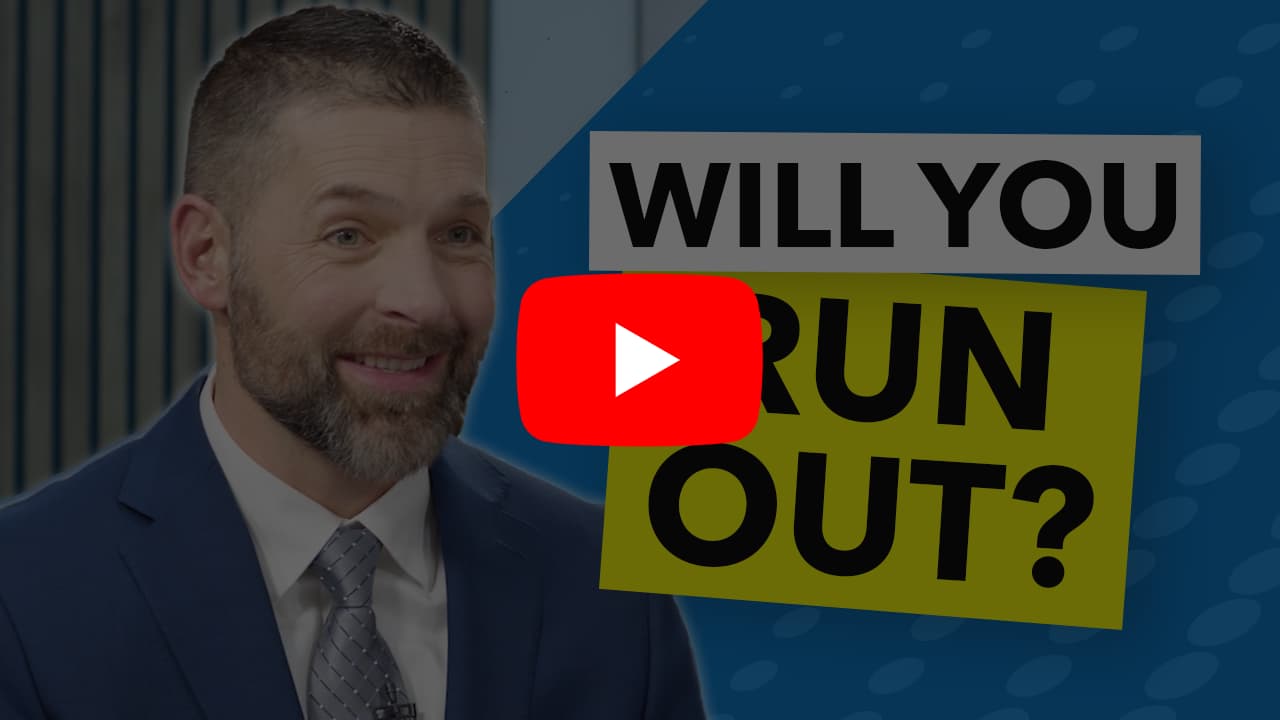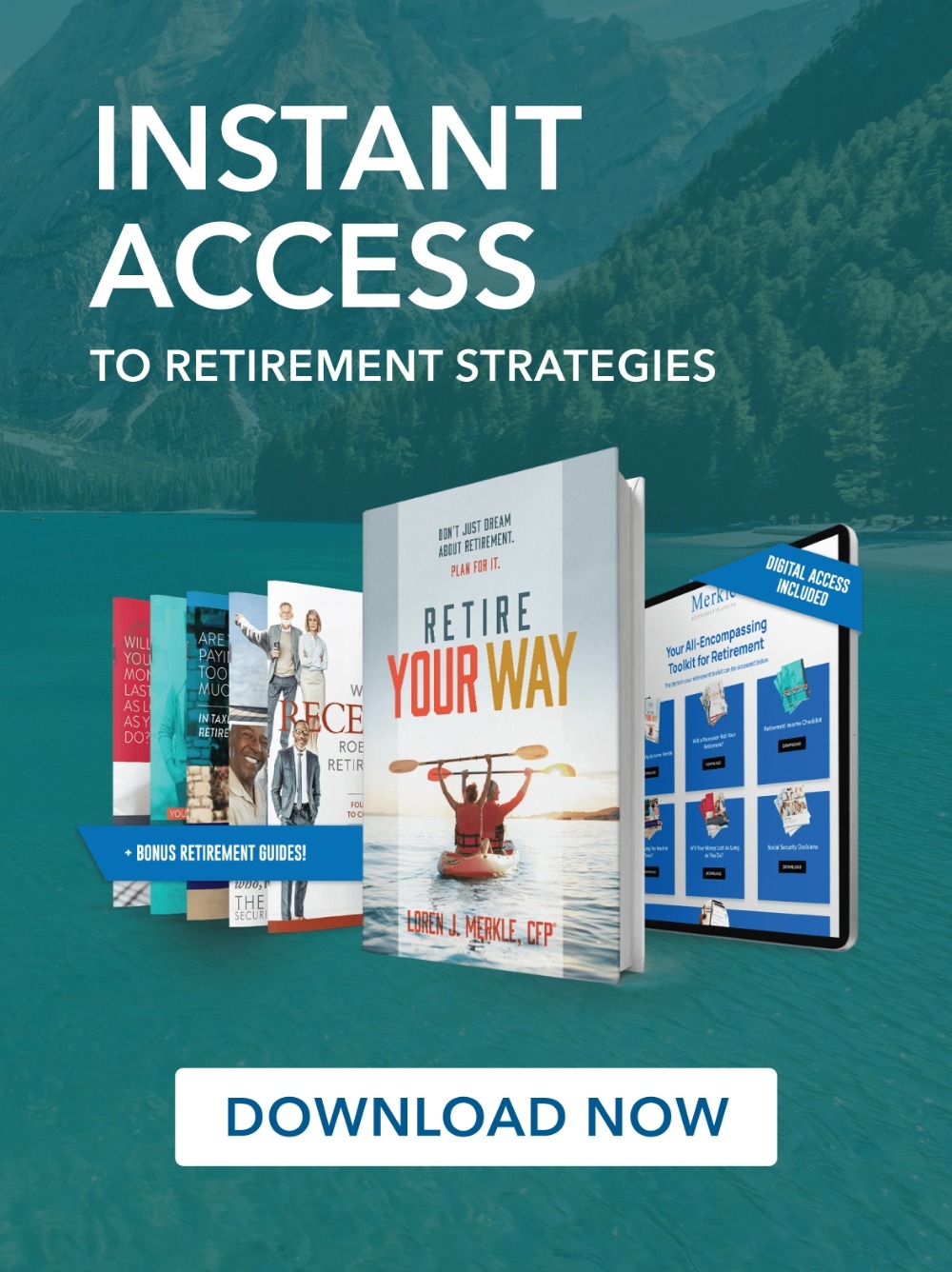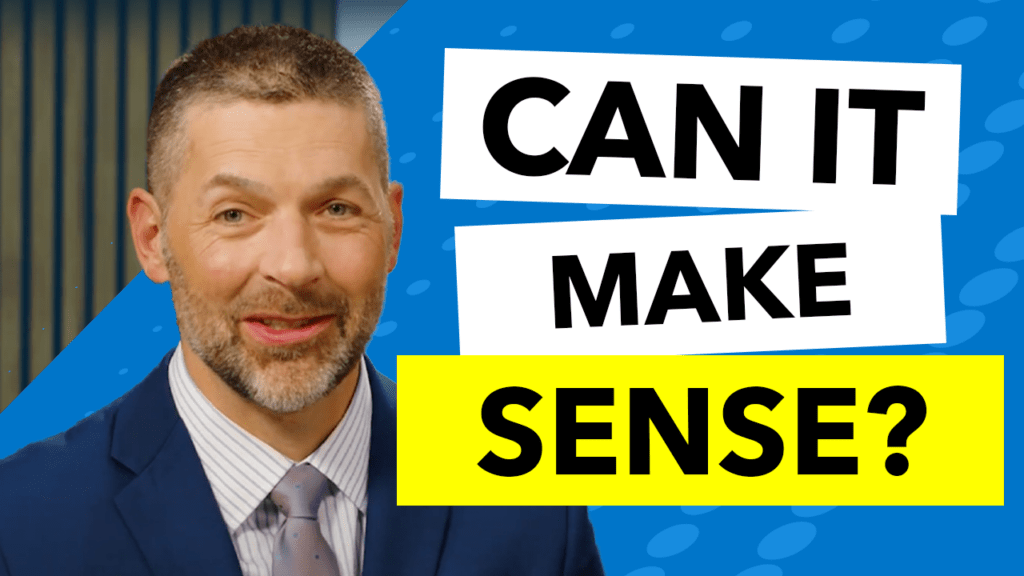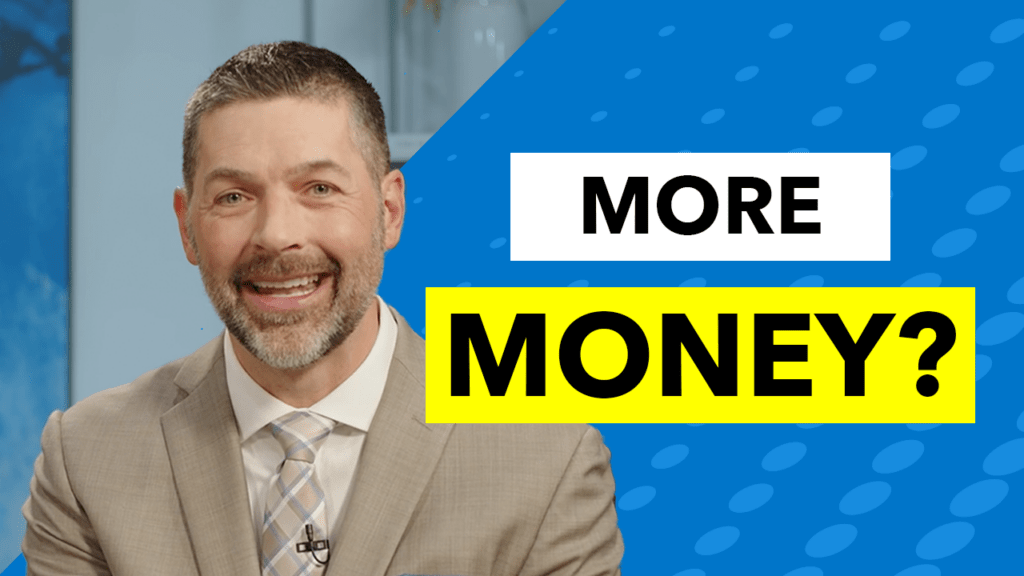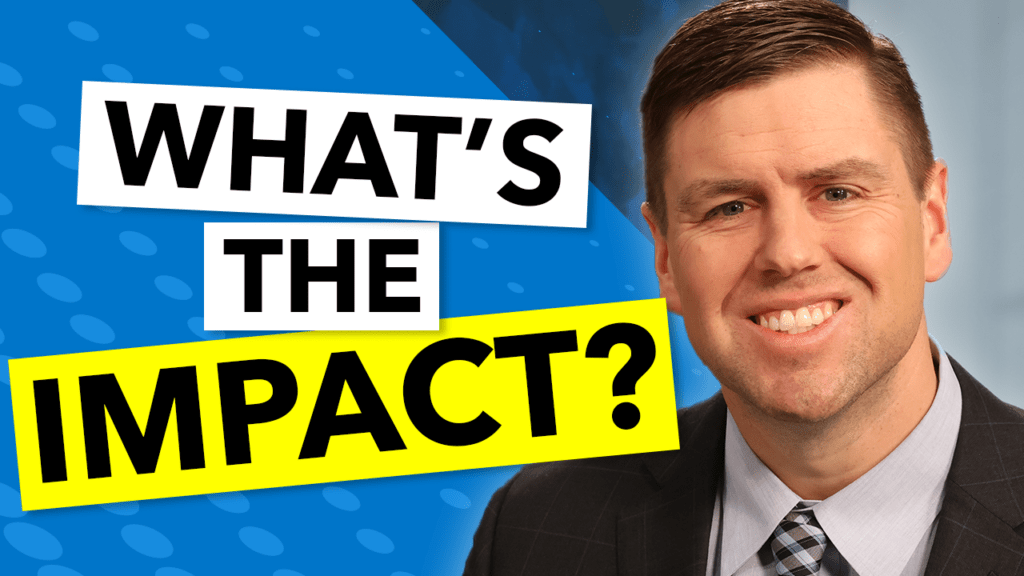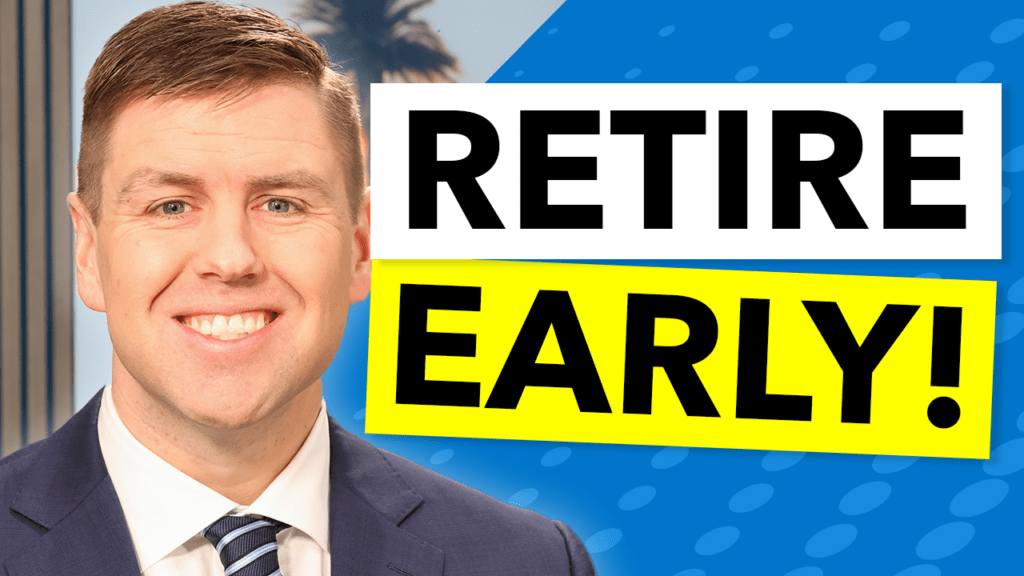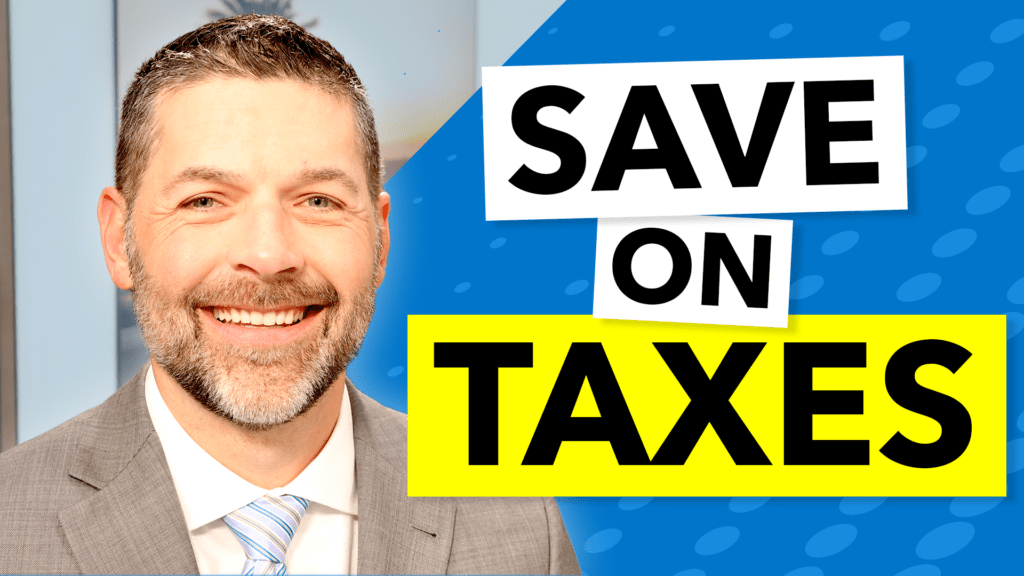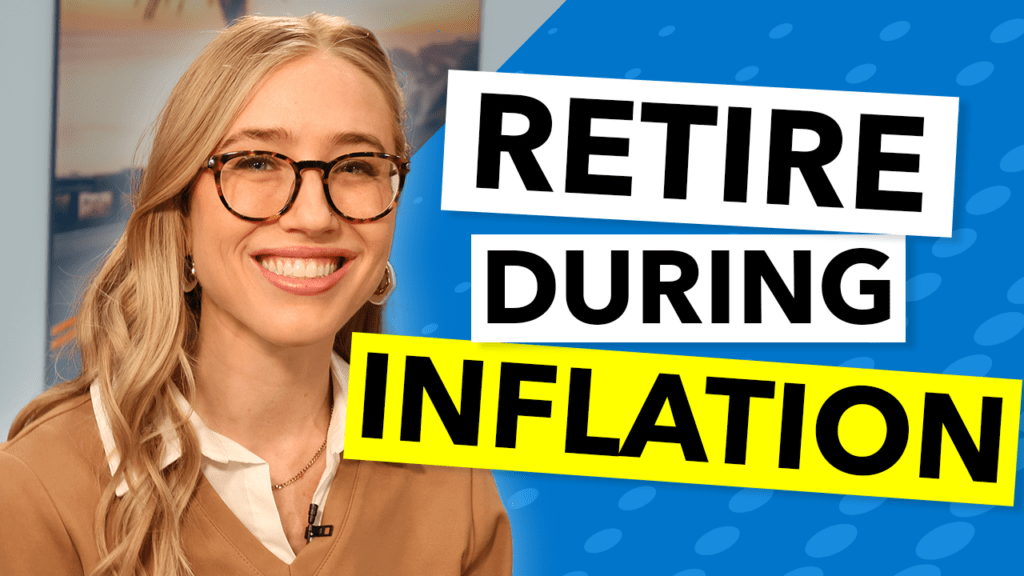In this episode of Retiring Today with Loren Merkle, we discuss three practical ways to overcome the fear of running out of money in retirement. Experienced CERTIFIED FINANCIAL PLANNERsTM Loren Merkle and Chawn Honkomp discuss:
– The number one money fear in retirement and the factors contributing to this fear.
– Strategies for estimating your retirement living expenses.
– How one couple squeezes an extra $80,000 out of Social Security.
– The importance of looking at the overall retirement plan to help ease money fears.
Don’t miss out on valuable information that could help alleviate your fear of running out of money in retirement.
–––––––––––––––––––––––––––––––––––––––––––––––––––––––––––––––––––––––––––––––––––––––––––––
TRANSCRIPT
Molly Nelson [00:00:02]:
Three ways to overcome a fear of running out of money in retirement. Next on Retiring Today. This is Retiring Today. I’m Molly Nelson, and I’m here with Chawn Honkomp and Loren Merkle. They’re both CERTIFIED FINANCIAL PLANNERsTM, and they’re both Certified Financial Fiduciaries®. And Chawn is also a CPA. Guys, you sit down with people every day and they talk to you about a lot of the aspects of retirement. But one thing that you hear and one thing that you read, and we’re going to talk about some studies that prove it, is that, Loren, a lot of people are scared that they’re going to run out of money in retirement.
Loren [00:00:44]:
It’s actually the number one fear. It wasn’t that long ago we did a show that said people actually fear running out of money in retirement more than, hold it, more than death itself. And that is just a reality of the situation, because there’s so many things that people have to consider as they look to make that transition. And very few people actually know the answer to the question, do I have enough? And that is a fearful thing to go into retirement, where you’re done making money. The idea is you’re going to retire, retire forever. You got one shot to get it right, and you don’t want to run out of money before you run out of time.
Molly Nelson [00:01:21]:
Yeah. And I can understand why they’re scared of running out of money. Look at what happened in 2022 with the markets in 401(k)s and IRAs. It’s understandable.
Chawn [00:01:30]:
The retirement journey is going to be a long time. I know a lot of people. You’re planning for 20 or 30, maybe even 40 years. For some of us, there’s a lot of life events that are going to happen. The markets are going to go up. The markets are going to go down. And when you’re in that distribution stage of life, there is fear. When we do see these markets go down.
Chawn [00:01:48]:
And in 2022, we saw that we had a significant market correction in 2022. And even in that timeframe, lots of people were able to retire. But it does, it still changes the feeling that you have. There is a lot of fear, Loren, you touched on it. There’s a lot of fear when you move away from that paycheck that’s coming from somebody else. And now you’ve got to take on that uncertainty of what does that look like once you do walk away from the career?
Loren [00:02:12]:
CNBC did a study, and they said in fourth quarter of 2022, the average IRA account balance went down by about 20%.
Molly Nelson [00:02:24]:
Wow.
Loren [00:02:25]:
So if you’re on the doorsteps of retiring or already retired, and you see your life savings go down by 20%. That creates fear, that creates anxiety. And unfortunately, recessions and market downturns happen all the time. On average, we go through a recession every five to six years. We go through bear markets where the market is down in excess of 20% on average every couple of years. So you, as a pre-retiree or retiree, will have to go through this many times over the course of your retirement, which just creates that circle of fear. And so that’s where we really have to do some work to create an environment, an overall experience based on fact of your particular case, to say, here’s where you are, here’s where you want to be. Now, here’s some very specific action sets that you can take to make sure that you can get there with way more confidence than just retiring and hoping things are going to work out.
Molly Nelson [00:03:22]:
And that same CNBC study, I know we both saw that, interviewed people, 48% of Americans said that they believe they’ll outlive their savings. So the markets are fueling that fear. But inflation doesn’t help, Chawn.
Chawn [00:03:33]:
Inflation, we know that that’s unknown. It’s one of those risk categories that are in front of us as we go through that retirement stage of life. And especially in these last few years, we’ve seen significant inflation. You’re seeing that when you go to the grocery store and when you pay your insurance premiums and pick a category, we’re seeing inflation and how that impacts. And that’s going to continue. We’re going to see inflation. We’re going to have modest years of inflation. There might be more timeframes where we see significant inflation.
Chawn [00:03:59]:
And that’s something that we need to plan for. We need to be aware of. That’s another uncertain area. So again, that uncertainty is where this fear comes from.
Molly Nelson [00:04:08]:
Okay, so we are done talking about fear. Let’s help people face their fears.
Loren [00:04:12]:
Let’s talk about the good stuff. How are we going to accomplish that?
Molly Nelson [00:04:14]:
It’s time to help you face your fears because that’s what we want to do in this show today. So let’s talk about one way to overcome those fears, and it’s to understand what you have.
Loren [00:04:11]:
Understand what you have. Take an inventory of all the different things that you might have within your, your overall retirement umbrella, if you will, that can provide you with income. Almost everybody has access to Social Security or a benefit program like Social Security. And there’s many options involved with Social Security. In fact, most people have up to 81 different options of how to elect Social Security. Use that complexity to your advantage. You can get more out of Social Security if you maximize or look through all the different 81 different options you have, as opposed to if you only had one or maybe two different options. So the fact that there is so many different options can be a really good thing if you understand how to use those options to your advantage.
Molly Nelson [00:05:09]:
So are you saying that sometimes people come in and maybe they have an idea of what they’re gonna get each month in Social Security, and then you’re like, but wait, hold on. We’ve got 80 other options for you to choose from. And then it’s really probably a pretty eye opening exercise?
Chawn [00:05:22]:
Yeah, that’s part of the analysis. We know making that Social Security decision is important. It’s not uncommon for a couple. If you are married, then you might get up to or more than $1 million from Social Security during your retirement. So we know it’s an important decision. And we know a lot of you have these initial thoughts on maybe what you want to do or what might work best for your plan. But if you’re not considering these other assets, if you don’t have this inventory, then you might go out there and just make that isolated decision, and that may or may not be the best decision. So we want you to have more information so that you feel that you are making that Social Security election decision that helps benefit you the most for the long run.
Molly Nelson [00:05:22]:
And part of understanding what you have, Loren, is having an idea of what you’ll pay in taxes. But it’s really hard for me to wrap my mind around going, oh, this is what I’m going to pay in taxes in retirement.
Loren [00:06:10]:
It’s really hard because you have different income sources than what you’ve ever had before, whether it’s from a pre-tax IRA that you’re going to be taxed, or a Roth IRA that’s tax free or is Social Security taxed? Is it not taxed? Because for some people it is, and other people it’s not. For some people, it’s taxed at a different level. So understanding how the different income sources can be taxed and then how you can optimize those income sources, and if there are strategies you can employ to decrease your tax bill, what that does immediately is increases your spendable income, which can have an effect of decreasing your fear of outliving money because you can spend more from the start.
Molly Nelson [00:06:51]:
And another part of understanding what you have, Chawn, is to understand your investments. And again, people aren’t expected to know what they’re going to pay in taxes themselves. That’s the value of sitting down with a retirement plan. But one thing you have people do, Chawn, is look at where they’re currently invested and what that means for them when they retire?
Chawn [00:07:07]:
You want to know the different types of accounts you have. You want to know where you know how those things are invested, the tax diversification. So this is a great example where knowing the taxes is part of also knowing what your investment plan looks like because there is some overlap there. So, yeah, we want to have that full inventory of everything that we have, have a good idea of the different accounts. And you might be surprised how once in a while we do work with families that, oh, yeah, I forgot about that old 401(k). So that’s the value of creating that inventory is making sure that you are aware of everything you have. And part of this planning process is really also too looking at what we have now. But the nature of planning is to look forward.
Chawn [00:07:43]:
So there might be an inventory of assets that possibly you plan on inheriting. So maybe there’s additional assets that are going to be a part of your future plan. We need to start thinking about that.
Molly Nelson [00:07:53]:
Oh, yeah. And you even talk about people who maybe have farmland, are they going to sell it? Are they going to pass it down? That could become part of a retirement plan. Or if you’ve maybe had some rental properties or things like that.
Chawn [00:08:02]:
That, yeah, just another type of asset that needs to be part of that inventory. So if you do have a rental property, that’s a cash flow generating asset, just like your pension, that’s cash flow that you are fairly confident it’s going to come every, in every month, and that can be part of your lifestyle. So, yeah, we’ve got to think about all these different assets that might be part of your retirement journey.
Molly Nelson [00:07:43]:
So we’re trying to help you overcome your fears. Sometimes one part way to overcome your fear is to take the next step. Take that next step. You can talk to a retirement planner about what’s on your mind, whether it’s taking an inventory of your assets or developing a customized retirement plan. You can schedule a 15-minute Retirement Check-Up Call right now by going to MerkleRetire.com. There’s a calendar there. Choose a time and a date that works for you.
Molly Nelson [00:08:42]:
If you don’t have an agenda, that’s okay. You can just start a conversation with a retirement planner today. We’re still going to talk about two more ways to overcome your fear of running out of money in retirement. Next.
Voice Over [00:09:04]:
Do you wonder if you have enough saved for retirement? Will your money last as long as you do? Will taxes, health care costs and inflation derail your retirement? Get answers. Schedule a 15 Minute Retirement Check-Up Call today. We can cover a lot in 15 minutes, including strategies you can implement now to start your retirement journey. Schedule a call at MerkleRetire.com the first step to a confident retirement starts with a simple phone call.
Voice Over [00:09:35]:
Anytime I have even the smallest question about my accounts or what effect the latest tax law might have on my situation. The Merkle Retirement Planning team is always there and quick to help. I’m so glad they treat you like, well, like family. I’m so happy to have such an excellent team working for my future and ensuring I do the best to achieve my financial goals.
Voice Over [00:09:59]:
Merkle Retirement Planning, your retirement starts here.
Molly Nelson [00:10:17]:
Welcome back to Retiring Today I’m here with Chawn Honkomp and Loren Merkle. We are talking about three ways to overcome your fear of running out of money in retirement. The first way was to understand what you have. Here’s number two. Understand what you need. Well, that feels like looking into the future. And that also feels like it could be really tricky, Loren?
Loren [00:10:35]:
It can be really tricky. But the easy part of understanding what it is that you need is to first understand what is it that you want. And this is the fun stuff because this is all the stuff that you’ve probably been dreaming about for the last, at least five years as you’re thinking about retiring, because what do you want to do with your free time? Do you want to travel domestically? Do you want to travel internationally? Some of our families, they will take their entire family, kids, grandkids, on a trip to Mexico once a year. What does your lifestyle in retirement, what do you want that to be? Because once you can put some kind of definition around what you want your lifestyle to look like, then you can start putting some definition around how much is it going to cost you to live that lifestyle.
Molly Nelson [00:11:18]:
And Chawn, you’ve talked to a lot of people about this and recently, kind of how this cycle of having to work through what you need and what you have and what you can spend changes throughout life.
Chawn [00:11:26]:
Yeah, I had a good laugh earlier just this week on a 15 minute phone call, because understanding what you need, it does require a process. And I know I don’t think we’re supposed to swear on the air, and maybe we can take care of that later. The big swear word is budget. And on this 15 minute phone call I was talking with an individual and we were talking about budgeting and he kind of had a good laugh about this circle of life, you know, stage one, first career, your first job, you got certain bills you need to pay, you’re only making so much and you have to set that budget. Be proactive about, hey, I only have so much coming in, I can only afford to spend so much. We progress through our careers, we all get to a stage of life where maybe cash flow is a little stronger, some of the bills are paid off, maybe those kids are finally off the payroll, their own careers, and you can spend a little more freely, more of spend whatever, figure out maybe after the fact, well, how much am I spending? You know, not too worried about it. And now we get to this stage of life, most of us still feeling financially strong, but now we’re trying to plan for this retirement journey of 20, 30, 40 years. And now we have to come back to that stage one again and be a little more intentional about, well, how much can I afford to spend? You know, what kind of lifestyle are you looking for so that you’re going to feel more confident as you get into that retirement stage of life that you’re not going to run out of money before you do run out of.
Loren [00:12:40]:
Time, which can be challenging for a lot of people because maybe they haven’t had to figure out what their budget is, was for the last ten to 15 years, and retirement is a whole new thing. But that’s okay because we’ve come up with a really simple process to help people identify what it is that you’re going to need to spend in retirement. The easiest way to figure out what you’re going to need in retirement is to look back to figure out what your lifestyle has cost you. And technology today has made this process much, much easier. So think about all the different ways that you spend money. Do you spend money on your credit cards? Most people do. And then pay it off each month. Do you spend money? Maybe occasionally, writing a check or through a debit card.
Loren [00:13:24]:
So look at the different ways you spend money. And then run a report through the credit card company or your bank and add up all the expenses that you’ve had over the last twelve month period of time. So here’s a prime example. Maybe you have some electricity costs, some water costs, maybe there’s a one time bigger expense like replacing a roof, subscriptions, mortgage, groceries, and then others would be anything else that’s not on this list, because this obviously is not all encompassing. Plus the fun stuff, the discretionary spend where you’re traveling and all the stuff that you’re going to do for fun, it also costs money. So one thing you might want to look at as you’re looking at all of your different expenditures over the last twelve months is some of these one time big expenses, like replacing your roof. If you replaced your roof maybe two years ago, the chances are you’re not going to have to pay to replace your roof five or even ten years down the road. So you can eliminate that from this exercise and then add up all of the other expenses.
Loren [00:14:30]:
And if we were to do that with this list, we add up all the other expenses besides replacing your roof, that is going to come to a total of $72,000. Now you can use that annual number, or if you divide that by twelve, that’s going to end up to be about $6,000 a month. So that is what it’s cost you over the last twelve months to live. And then that’s a baseline number that you can use to try to identify. Here’s what it might cost you for a year in retirement.
Molly Nelson [00:15:03]:
When you do this exercise, with the families and individuals you work with, how does this usually go? Are they surprised? Are they spending more than they think? Less than they think? I’m just really curious.
Chawn [00:15:12]:
There’s a lot of, there’s two different ways that we go. Typically when it gets to that point of trying to identify what they have, some people are on top of it and they know others, we ask that question and they look like a deer in the headlights, lost. So then we try to really kind of back into it while we’re working. We know how much money is coming in from your paychecks. If you’re not spending all that well, then we know their total expenses for their lifestyle is something less than that. So it does take a little work. I mean, it really just comes down to having visibility to our cash flow. So again, it’s that swear word, that budgeting.
Chawn [00:15:41]:
So it’s having that visibility, knowing where money’s coming in from where it’s going, that helps us develop those plans.
Loren [00:15:46]:
And using that, that tool, can be easy and give us a general idea. But the other thing to consider is in retirement you have a lot more free time. So the last twelve months of expenses included probably working full time where in retirement you’re probably not going to work full time, you have more free time. That could cost a little bit of money as well. So you do that exercise and maybe you can inflate that by 10-15 percent to maybe even give you a more accurate number.
Molly Nelson [00:16:11]:
And when we talk about this as being an exercise to help you overcome a fear of running out of money, when people see that number, does that help with this or how is that connection made?
Loren [00:16:21]:
Well, that’s one step. The next step is to put that into the overall retirement plan. So let’s say it’s $72,000 a year that you need to spend to have the lifestyle that you want. Now we look at all the different income sources that can deliver that and look at the probability of you being able to sustain that lifestyle, including factors like taxation and inflation and maybe long term care, some of these other expenses that could be really big down the road. Look at all of that and that’s going to be a part of that equation build as we go.
Chawn [00:16:52]:
It does help us provide a lot of information. So it is an important part of the plan. Just like there’s a handful of other assumptions that we work with on a daily basis that all impact what that plan looks like. And then as we show them that part of the plan on, hey, here’s what your long term cash flow looks like at a certain age, at age 80, at age 90, at 100, that’s where we see lots of differences. Some people might say, hey, I’m supposed to run out of cash at 90, not worried whatsoever. Whereas the next couple might say, hey, that is very concerning. Or their budget is set to be $6000 a month and their plan shows that they could comfortably spend $10,000 a month. That is extremely valuable.
Chawn [00:17:29]:
You talk about limiting that fear and getting rid of that fear. This is a big party. It does provide a lot of information so that we can continue to make good decisions along the way.
Molly Nelson [00:17:38]:
And I’m glad you mentioned the overall plan because I know that’s what you help people put together all the time. But those of you watching are probably saying, well, what is a plan? What does it look like? And a really great way to get a really concrete idea of what a comprehensive retirement plan is, is our online Journey to Retirement workshop.
Loren [00:17:52]:
Because in this workshop what we do is we take a hypothetical couple, John and Sue, and they want to retire in three short years. They’re 62, want to retire at 65. They have some very specific goals that they want to accomplish in retirement. We outline what those goals are and then we go through the six pillars of the plan that they put together to make sure that they can accomplish those goals. Like saving money on their retirement tax bill. And we show specific strategies in this online Journey to Retirement workshop where John and Sue knock over six figures off of their retirement tax bill. And what that means is they can take that money and apply it to their lifestyle spend to enjoy retirement that much more.
Molly Nelson [00:17:28]:
Six figures off your tax bill. I’m sure your ears perked up at that one. Well, here’s what you need to know. There’s a website where you can go sign up for that online Journey to Retirement workshop. It’s RetireWithMerkle.com. You can go to that website now. Sign up for the online Journey to Retirement workshop at a time and a date that works for you and learn all about a comprehensive retirement plan. But we promised you three ways to overcome your fear of running out of money in retirement.
Molly Nelson [00:18:56]:
We’ve got that third step coming up next.
Voice Over [00:19:04]:
Do I have enough saved for retirement? When should I take Social Security? Which Medicare option is best? How do I plan for inflation? Sometimes the road to retirement starts with more questions and answers. We’re here to help. Join us for our upcoming Journey to Retirement workshop. Get answers and start your retirement journey with confidence. Our online workshop includes information on Secure Act 2.0 and changing retirement rules. Visit RetireWithMerkle.com to register for an upcoming workshop. Your retirement journey starts now.
Voice Over [00:19:36]:
The Merkle Retirement Planning team provides personable and professional expertise unrivaled in this area. They include us in every step of the planning process. The peace of mind provided to us by the Merkle team allows us to fully enjoy this special time of our lives. Instead of feeling snakebit, we feel confident that with the Merkle Retirement Planning team at our sides, we can navigate any challenge that comes our way.
Voice Over [00:20:00]:
Merkel Retirement Planning your retirement starts here.
Molly Nelson [00:20:16]:
Welcome back to Retiring Today I am here with Chawn Honkomp and Loren Merkle, and we are talking about three ways to overcome your fear of running out of money in retirement. Our third way is to make peace with your money worries. And this really speaks kind of to the psychology of retiring.
Loren [00:20:30]:
There’s a lot of complexity that goes into retiring. There’s a lot of decisions that people have to make that they’ve never had to make before, which leads to a lot of not confident decisions or kind of wandering through the course of pre-retirement to retirement phase. And what all of this planning does is it brings the confidence back into the decision making. And of all the different phases and transitions of your life, this is probably one of the most important transitions and phases of your life where you really, really want to make confident decisions because the decisions that you have to make often times are permanent, which means it’ll be lasting decisions, potentially the next 20 to 30 years of your life.
Molly Nelson [00:21:10]:
And I think some of that fear gets fueled by numbers. So we talked about in that first segment, you know, the market drops and that sort of thing. But I’m also thinking about the number of, like, you look at your 401(k) balance and you’re thinking you need to have some certain number, Chawn. And if you don’t have that, there’s no way you can retire. Well you sit down with people all the time and say, no, you can, you’re good because we’re going to look at other aspects of what you’ve saved.
Chawn [00:21:34]:
Yeah, we’ve got to look at that total picture. But I think a big takeaway from that is that as we approach retirement and look to make this really important retirement decision, you can’t just look at one component and say, yes, there is not going to be one thing like, all right, age 60, we made it, let’s retire. Or we hit 65 and now we have Medicare, so let’s retire. Or the simple balance of, hey, here’s what our total savings is. Maybe you had a mark out there for a number of years and you hit that. That doesn’t mean you’ve got that peace of mind. And this really resonated with me. I was in a visit about two weeks ago with a couple in their mid and upper fifties.
Chawn [00:22:05]:
Their total savings is right around $3.7 million. And that’s across their retirement accounts, IRAs, 401(k)s. So that’s not looking at their physical assets, property, anything else like that. And early in the visit, I said something to them as we got to their assets. We were reviewing that. I said, you know, hey, you guys are in that top 1%. And we kind of…
Molly Nelson [00:22:22]:
That’s an impressive number, by the way. You’re like, that’s an impressive amount.
Chawn [00:22:28]:
It definitely is. It’s more than average, right? That’s much more than the average household. So especially at their age of mid to late fifties. And so we went on our way, and about ten minutes later, they were talking about something and they kind of paused and said, you know, hey, we don’t feel like we’re in the top 1%. And it really kind of landed with me. I kind of stopped. And then I realized, you know, well, this is what I do every day. This is what our team does every day.
Chawn [00:22:47]:
We look at everything. And as we prepare for that visit, I’m looking at these other components, but we hadn’t gotten to these other components in their plan, and it made me think that, hey, it landed with them and it might land with you. That we can’t just look at that total retirement savings. We need to be thinking about, what is your potential tax bill going to be? What kind of health care expenses could you potentially be looking at in retirement? What is inflation going to do? So that one number, no one single number is going to tell you that whole story and provide that peace of mind.
Molly Nelson [00:23:19]:
I think when you’re scared of running out of money, you’re also thinking, I’m 65, if I make it to 65, we know that the average age is like that. You live to 86 or 87. So you’re thinking, what I’m trying to get to here, guys, is you’re thinking about 20 years. And yes, $3 million is a lot of money, but if you’re already spending kind of a high amount of money, $3 million doesn’t feel like it’s going to get you through 20 years of retirement.
Loren [00:23:42]:
It doesn’t feel like it because there’s so many unknowns, and a lot of people are concerned about the cost of health care 15, 20 years down the road. What is that? How is that going to eat into their nest egg? There’s also a lot of people who have saved for 40 years, and they want to have something left over at the end of their life that they can pass on to their kids to help improve, or their grandkids to help improve what they have going on. And so there’s that ambition, too. So they want to make sure that they have enough security for themselves, the lifestyle that they want to live in retirement, but yet pass some along, too. So there’s just a lot of uncertainty. There’s a lot of questions that aren’t answered, and that leads to that lack of confidence in answering that question, do I have enough?
Molly Nelson [00:24:23]:
So I think, in conclusion, make peace with your money worries means that you need to understand what all is coming in retirement. It’s not just singly focused. There’s a lot going on. And Journey to Retirement is a great way to see all these things that are coming and understand how you have to plan for them.
Chawn [00:24:37]:
Our Journey to Retirement workshop can be really extremely valuable for so many of you out there. We walked through the six components that are part of our retirement planning process, and that can really feel like step one for all of you now you’re going to be starting to think about these other components we talk about not, there’s not one component, there’s not one measurement. We need to start thinking about everything that you’re going to be facing in retirement. And something we talk about a lot is these decisions that you’ve made up until this stage of life. Those aren’t the same decisions that you’re going to be facing that will get you through retirement. So we’re going to talk about these six components. We’re going to talk about that lifestyle plan, which is so much of what we talked about today, and the income tax planning, the investment planning, the health care plan, the legacy plan. So we’re going to focus on all those and start helping you get that much closer to building that comprehensive retirement plan.
Molly Nelson [00:25:27]:
Loren, who should attend the online Journey to Retirement workshop?
Loren [00:25:30]:
If you want to retire within the next five to ten years or you’re already retired, you will appreciate the information that comes from the online Journey to Retirement workshop. Going through the six different components, through the hypothetical couple that we’ve created. Their name is John and Sue. They want to retire in three short years, and we show you specific strategies that they can incorporate to accomplish their goals. And one of the strategies is how they optimize their Social Security benefits. We said you might have up to 81 different options when it comes to electing Social Security. We show how John and Sue, through their decision making process and integration of their Social Security decision with all the other decisions they make, saved over $80,000 of lifetime income or enhanced their Social Security income by over $80,000. Strategies like that that you can take out of the workshop implement almost immediately to help you on your way to retire successfully.
Molly Nelson [00:26:25]:
An extra $80,000 in retirement would sure help ease my fears if I was.
Loren [00:26:31]:
Yeah, it could go a long way. And that’s one of the different components in that workshop. There’s the still the tax planning and the tax planning savings and the legacy planning, all of that stuff that John and Sue and you have to make decisions on as you’re looking to make this lifetime transition.
Molly Nelson [00:26:47]:
Here are the details. It’s an online Journey to Retirement workshop. You can go to RetireWithMerkle.com right now. You choose a time and a date that works for you, and then here’s what you do. You get comfortable because this is going to be almost 2 hours of your life. But don’t get intimidated by that because you deserve it. You deserve to spend 2 hours on your retirement. You’ve been working for almost 40 years.
Molly Nelson [00:27:07]:
It’s our online Journey to Retirement workshop. It is complimentary and it is a great way to get started on your journey to retirement. This has been retiring today and we thank you for watching.
Voice Over [00:27:24]:
Do I have enough saved for retirement? When should I take Social Security? Which medicare option is best? How do I plan for inflation? Sometimes the road to retirement starts with more questions than answers. We’re here to help. Join us for our upcoming Journey to Retirement workshop. Get answers and start your retirement journey with confidence. Our online workshop includes information on Secure Act 2.0 and changing retirement rules. Visit RetireWithMerkle.com to register for an upcoming workshop. Your retirement journey starts now.
–––
We are an independent financial services firm helping individuals create retirement strategies using a variety of investment and insurance products to custom suit their needs and objectives. The content and examples shared are for informational purposes only and should not be construed as investment advice or serve as the sole basis for making financial decisions. Individuals are encouraged to consult with a qualified professional before making any decisions about their personal financial situation. Our firm is not permitted to offer legal advice. Investment Advisory Services offered through Elite Retirement Planning, LLC. Insurance Services offered through MRP Insurance, LLC.
